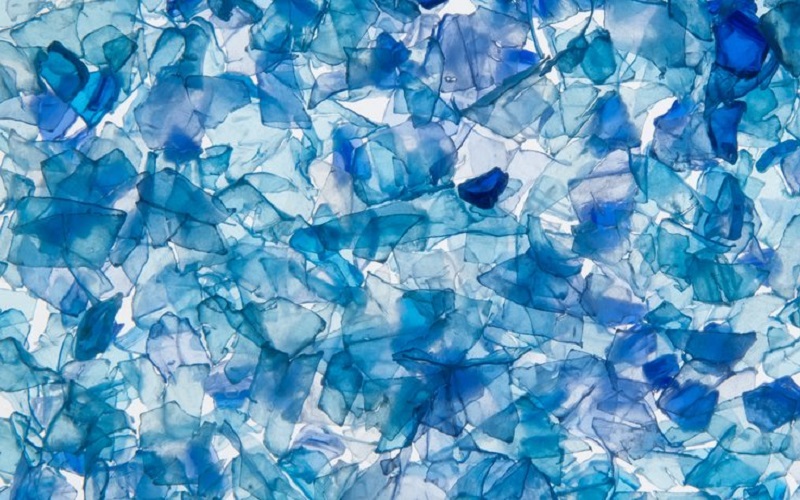Search Products
Polymer, Rubber & Paper
Plastics in the Environment “PLASTIPHOBIA”

Imege: Plastic is actually the best material for a wide range of everyday uses, and is much the best for protecting our food from contamination and preventing food-waste and disease.
This is a new word which entered the English language in 2019. It describes the emotional reaction against plastic which spread like wildfire when David Attenborough’s “Blue Planet” programme appeared on the BBC. Environmentalists and politicians leapt instantly to ban plastics all around the world.
A report was published by the Green Alliance in January 2020 https://www.green-alliance.org.uk/plastic_promises who had interviewed representatives from five of the UK’s major supermarkets as well as from major consumer goods and beverage companies. One of them had received many complaints saying that “plastic is evil and has no place, regardless of any positives it might have in addressing food waste and what not… It’s been ferocious.”
However, these companies need to resist Plastiphobia, because the report finds that “Worryingly, the brands report that decisions to switch away from plastic are often made without considering the environmental impact of the substitute materials chosen.” Multiple interviewees indicated the desire to avoid “kneejerk reactions” and one respondent added: there is “not a lot of joined up thinking going on.” Another noted: “I think there’s a lot of pressure to move to alternatives, which aren’t necessarily better from an environmental and climate-impact point of view.”
The Report says that some decisions have been taken knowing it could actually increase environmental burdens. One supermarket representative was frank: “We are aware that [by switching from plastic to other materials] we may, in some cases, be increasing our carbon footprint.” A brand representative bluntly complained about misinformation being spread about the environmental credentials of non-plastic single use packaging formats: “The past year has just really annoyed me with companies coming out and boasting about not using plastic, even when they’re in single use glass, and their carbon emissions are going to be off the scale.”
In 2020 the Coronavirus epidemic has made everyone realise that single-use plastic is essential to protect us from the spread of disease. It is obvious that a brand new checkout bag is less likely to spread disease than a bag which you have used a dozen times, and in many countries around the world single-use plastic bans have been overturned or suspended – See https://bioplasticsnews.com/2020/03/24/michael-stephen-ditch-plastic-bag-ban-inn-probio/ This is not a temporary phenomenon, because people are never going to forget the need to protect themselves and their families from microbial attack.
On 24th May 2020 The Sunday Times wrote “ The UK government has delayed a ban on plastic straws… Some measures to reduce plastic bag use have also stalled, with the government temporarily waiving the requirement to charge for plastic bags used to deliver online orders. Tesco has temporarily reintroduced them, free of charge.”
Paper? Some supermarkets had shifted to single-use paper bags, but this is a worrying trend, as paper bags can have much higher carbon impacts, and will disintegrate if they get wet. A 2011 study for the Northern Ireland Assembly found that paper bags generally require four times as much energy to manufacture as plastic bags. A February 2018, Life cycle assessment of carrier bags in Denmark concluded that “When factors like ozone depletion, human and ecosystem toxicity and water and air pollution are accounted for, a paper bag would need to be reused 43 times to have a lower impact than the average plastic bag.”
Refillables? concern with the in-store refill model is the reduction in shelf-life for some products, with one respondent noting that some fresh drinks would last just two days if poured into a customer’s own bottle, compared to 20 to 30 days in a factory-sealed container.
Plastic is actually the best material for a wide range of everyday uses, and is much the best for protecting our food from contamination and preventing food-waste and disease. It also has a much lower global-warming potential than other materials used for packaging according to LCA’s performed by Intertek https://www.biodeg.org/life-cycle-assessments/life-cycle-assessments-2/
Plastic is made from a by-product of refining oil, which is extracted to make fuels, and these fuels would be made whether plastic existed or not, so plastic is not itself causing any depletion of fossil-resources. When the plastic becomes waste, its calorific value can be used to generate heat and electricity if, instead of being sent to landfill or if unsuitable for recycling, it is sent to modern, non-polluting, thermal-recycling units
The only problem with plastics is the length of time they can lie or float around if they escape into the open environment, but this problem can now be solved.
Biodeg



